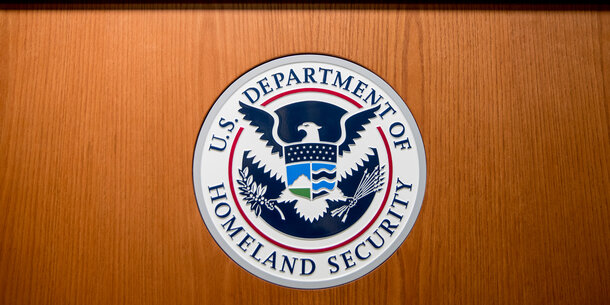For the second time in as many weeks, a federal judge has halted President Trump’s imposition of sanctions against a mobile application on free speech grounds. The sanctions, supposedly based on national security concerns about China, would have rendered the apps WeChat and TikTok unavailable for download or updating in the United States. The underlying law on which the sanctions are based, the International Emergency Economic Powers Act (IEEPA), is broad and powerful, and the president must declare a national emergency to invoke it.
Usually the president has wide leeway under the law, so what could explain the judicial pushback in these two cases? It could be the nature of the claims at issue, but it could also be that the judiciary is growing weary of emergency actions that are based on scant evidence. Indeed, executive overreach in the use of IEEPA after the 9/11 attacks occasioned similar pushback.
On September 19, a judge in California ruled against the WeChat sanctions in a case brought by a group of U.S.-based users of the app. The court found that the plaintiffs had shown a likelihood of success on their claims that the shuttering of the app was a prior restraint of speech and that it was overly broad in the speech it would suppress.
Then, last Sunday night, as the clock neared the midnight deadline by which app stores would have to remove TikTok from their offerings, a judge in Washington, DC, granted an injunction to that company as well. The judge based his decision on two statutory exemptions in IEEPA, for “informational materials” and “personal communications,” that were themselves meant to protect free speech principles.
Trying to marshal what had historically been a fairly successful line of attack, the Department of Justice lawyer opposing the TikTok injunction cautioned that the company was “challenging a national security determination by the president as well as the judgment of the secretary of commerce about what’s necessary to mitigate those national security harms,” adding that “the court owes significant deference to that.” Nevertheless, whatever deference the judge thought appropriate, it was not enough to stave off the injunction.
The government, for its part, denies that sanctions prohibiting business transactions with the apps have anything to do with free speech. But, rejecting that contention, one judge quoted Trump’s own executive order issued in May under the title “Preventing Online Censorship.” It states that social media and other online platforms “function in many ways as a 21st century equivalent of the public square.”
Hovering in the background is the fact that the Trump administration has taken a number of actions with questionable evidentiary bases under aggressive interpretations of emergency or national security powers. They include declaring an emergency at the border to fund a wall, sanctioning International Criminal Court personnel, and banning the admission into this country of people from six Muslim-majority countries. Such actions may be influencing judges to view Trump’s emergency declarations with a justifiably more jaundiced eye.
The government itself prompted consideration of these precedents in the apps litigation by relying in their briefs on the Supreme Court’s decision in the Muslim ban case, Trump v. Hawaii. In both the WeChat and TikTok cases, the Department of Justice quoted that decision to argue that a court should not substitute its assessment of national security concerns “for the Executive’s predictive judgments on such matters, all of which are delicate, complex, and involve large elements of prophecy.” The suggestion that courts accede to the executive’s mystical powers was unavailing. The judge in the WeChat decision held that while “the government’s overarching national-security interest is significant” it had shown “scant little evidence” that banning WeChat for all U.S. users would address those concerns.
Whatever the reasons for the more thorough review of the president’s use of this emergency power, the decisions have echoes in the period following the 9/11 attacks, when the Bush administration used IEEPA to freeze the assets of a group of primarily Muslim charities in the United States, effectively bankrupting them. This was a step too far for some judges, who pushed back on its constitutionality. They held that the sanctions, as implemented, violated the plaintiffs’ Fourth and Fifth Amendment rights regarding unreasonable seizures and due process.
Not all of the plaintiffs in cases challenging the sanctions against the apps have been successful; a judge in Pennsylvania recently denied a group of TikTok users an injunction, rejecting their First Amendment claims. In addition, these latest decisions will surely be appealed.
But it is possible that there is a growing awareness among the judiciary that broad deference to the executive in the use of emergency powers is neither advisable nor salutary to our democracy.






